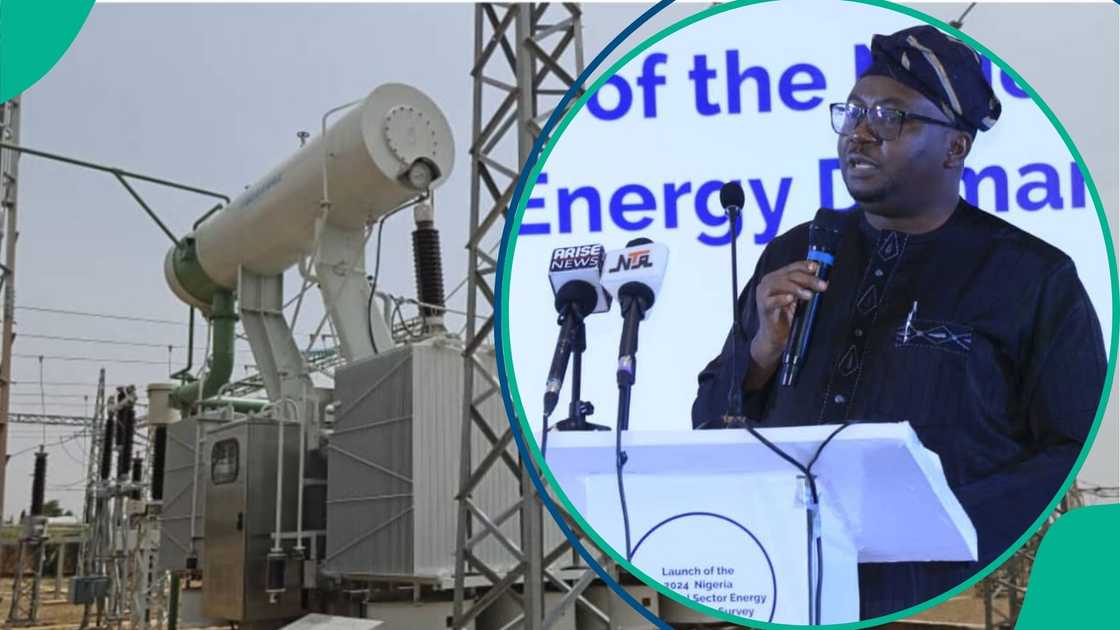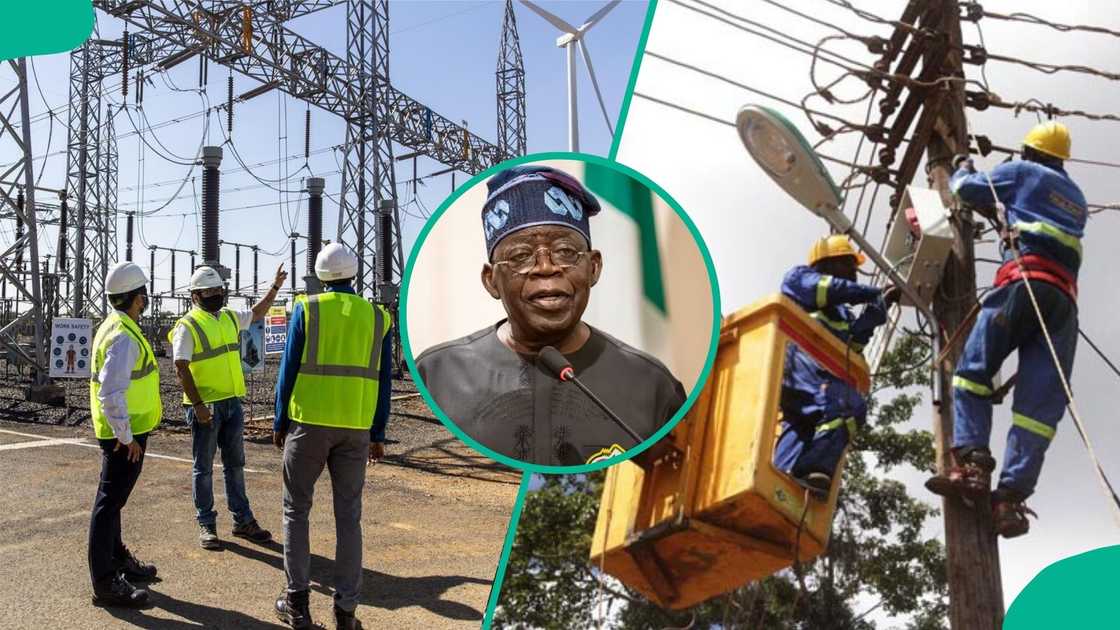The ongoing challenges in Nigeria’s power sector have once again taken center stage as Minister of Power, Chief Adebayo Adelabu, recently announced that the Federal Government will not renew the operational licenses of underperforming electricity distribution companies, commonly known as DisCos, when their current terms run out in 2028. His remarks, delivered at the 2025 Nigerian Economic Summit in Abuja during a session titled “Uninterrupted Power Supply: The Industrial Imperatives,” directly addressed the mounting frustrations of Nigerians regarding frequent blackouts and erratic electricity supply.
With millions of Nigerians relying on power for daily living, business, healthcare, and education, shortcomings in distribution directly affect economic growth and the quality of life across the country. Adelabu emphasized that much of the sector’s difficulty stems from inefficiencies within the DisCos, noting that these companies have become a major obstacle to reliable energy access despite ongoing reforms and investments.
FG to revoke licences of failing DisCos
Adelabu’s warning comes at a time when the electricity sector faces mounting financial strain. Issues such as repeated national grid collapses, insufficient investment, poor infrastructure, and inadequate revenue collection have all contributed to the crisis, according to industry analysts and stakeholders. Addressing a standing-room-only audience, Adelabu expressed concerns that if distribution does not improve, the broader goals of sector reform will remain out of reach.
According to a recent report from Punch, the minister stated that, while numerous legacy and structural obstacles persist, it is the distribution companies specifically that serve as a primary bottleneck in the power sector’s progress. He was quoted as saying:
“The distribution companies need to sit up. They are a major bottleneck in the sector, and the government is doing everything possible to ensure they meet expectations. Their licences will expire in two years, and there will be major reforms before any renewal.”
He further cited World Bank statistics underscoring the gravity of the situation: in a 2025 report, Nigeria was revealed to have the world’s largest population living without access to electricity—an estimated 86.8 million people. This staggering figure not only places Nigeria at a disadvantage among its West African peers but also underscores the urgent need for reform in the sector.
To address these longstanding problems, Adelabu explained that the government is preparing an aggressive overhaul of utility operations. Going forward, licence renewals for DisCos will hinge squarely on measurable performance metrics, particularly improvements in technical competence, financial stability, and demonstrated commitment to national development objectives. Underperforming firms will not be allowed to continue.
He added:
“Those that have not shown good faith, demonstrated technical expertise, proven financial strength and stability, or acted in the country’s best interest will be kicked out.”
Adelabu elaborated that any company found lacking in technical expertise or financial capacity—or failing to prioritize the nation’s development—will be disqualified from running electricity distribution networks in the next licensing cycle. These reforms, he argued, are intended to instill a results-oriented culture and incentivize companies to prioritize consumer interests over profit margins.
Additionally, the federal government is set on achieving universal metering within the next three to five years, a move widely applauded by consumer advocacy groups as vital to eliminating the estimated billing practices that have plagued the sector. This will help foster transparency, encourage payment discipline among consumers, and improve revenue collection for the companies willing to meet expected service standards.
FG will clear debt owed to GenCos
Another issue of deep concern is the spiraling debt owed to power generation companies (GenCos) and gas suppliers, which has reportedly reached a staggering N4 trillion. Adelabu noted that President Bola Tinubu has now approved a N4 trillion bond to clear these verified obligations. The settlement of these debts, experts say, is critical for restoring trust among private-sector partners and ensuring a stable power supply chain from generation to distribution.
The minister also outlined plans to introduce a targeted subsidy scheme designed to shield Nigeria’s most vulnerable households during the transition toward full sector commercialisation. “The intent is to guarantee that the poor are not left behind as cost-reflective tariffs become the norm,” Adelabu explained in his address. Economic analysts have long called for tailored subsidies, arguing that blanket subsidies have historically strained federal finances without providing sufficient relief to those most in need.
It is worth recalling that the Federal Government earlier secured approval for an $18.2 billion loan from the National Assembly, aimed at building a new, robust super-grid to upgrade the nation’s outdated energy framework. According to experts, the development of a modern super grid represents a significant opportunity not only for Nigeria but also for regional power integration across West Africa, fostering energy trade and enhancing grid reliability.

Source: Twitter
FG announces deadline for stable electricity
In line with these sweeping reforms, Adelabu reaffirmed that President Tinubu’s administration is committed to delivering stable and uninterrupted electricity to Nigerians before the end of his term. This pledge builds on goals set forth in the Renewed Hope Agenda, which emphasizes increased generation capacity, infrastructure upgrades, and comprehensive reforms across the energy value chain.
Some milestones highlighted under this agenda include expanded generation capacity and the launch of several sector-wide reforms. While challenges remain, progress has been reported in certain regions, particularly where privatization and regulatory improvements have been most rigorously implemented. Nigerian consumers, however, still report erratic supply and billing concerns—even in urban hubs like Lagos, Abuja, and Port Harcourt—underscoring the need for deeper, system-wide change.
To achieve these reforms, Adelabu affirmed continued collaboration with both distribution and generation companies. He called on private investors, local entrepreneurs, and international partners to invest in the sector, promising an improved regulatory environment that favors consistent service delivery and consumer satisfaction. The government also seeks to address rural electrification gaps, with the goal of providing affordable, reliable power to remote and underserved communities nationwide.
Local industry experts, such as Chijioke Adamu of the Nigerian Association of Energy Consumers, have said that such measures—if genuinely enforced—could be transformative for Nigeria. “The tough stance on non-performing DisCos is overdue. Nigerians deserve value for their money, and reliable electricity is not a luxury but a necessity for development,” Adamu said in a media interview. However, consumer watchdogs stress that follow-through will be crucial. As similar promises were made in prior years, many citizens remain cautiously optimistic.
On a regional level, energy analysts in Ghana and other West African nations are closely observing Nigeria’s approach. Reliable cross-border electricity could bolster integration, growth, and shared prosperity throughout the ECOWAS region. The stakes are therefore high—not just for Nigeria, but for the continent as a whole.
Yet, as the 2028 deadline approaches, significant concerns linger surrounding whether these measures will be sufficiently enforced or if regulatory loopholes will allow struggling DisCos to persist. Additionally, while the licensing policy and debt repayment are ambitious, there are questions about sustainability, the role of state governments, and how ordinary citizens can hold providers accountable for their obligations. Discussions are expected to intensify ahead of the next licensing renewal cycle, with many urging both vigilance and transparency in execution.
The journey toward a stable, equitable power supply for all Nigerians is complex and fraught with challenges. However, with a combination of political will, public oversight, and genuine private sector commitment, the sector’s future could yet be bright.
Do you think the Federal Government’s tough stance on underperforming DisCos will finally deliver reliable power for Nigerians and inspire positive change in the region? What solutions do you think are still needed to ensure lasting impact? Drop your thoughts in the comments and stay connected for more updates!
Looking for support or have questions? Reach out at support@nowahalazone.com.
Connect with us on Facebook, X (Twitter), and Instagram for breaking news, community insights, and exclusive reports!










